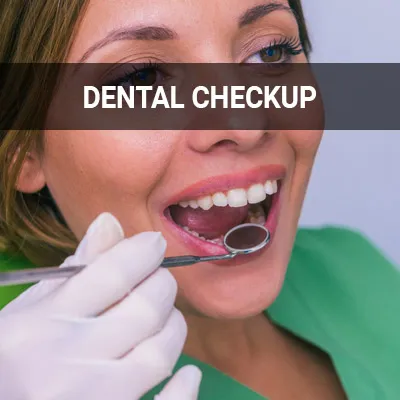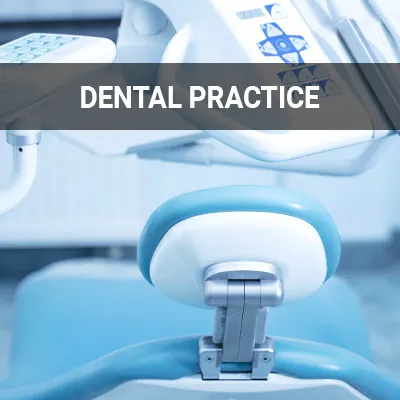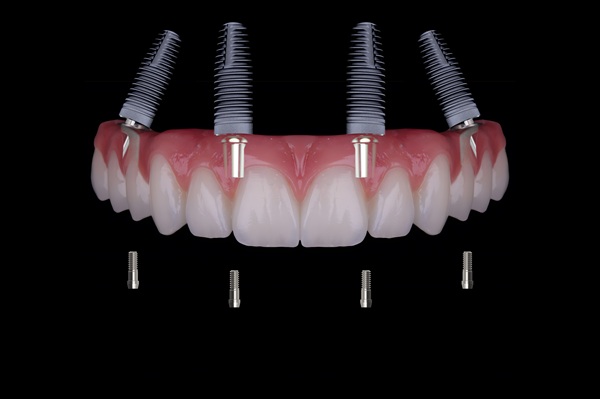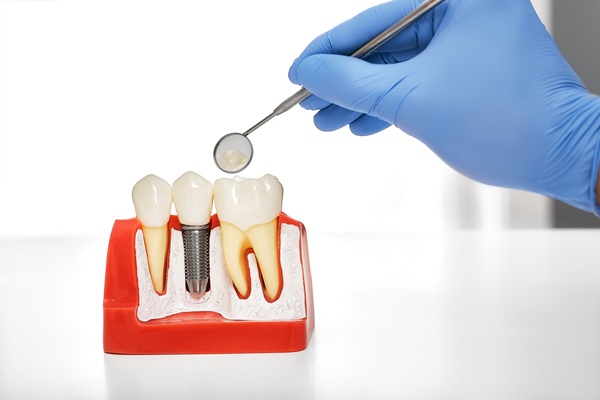Comprehensive Dentist New York, NY
Many people do not realize that good total health starts with good oral health. The reverse is also true. Neglecting any health concerns will inevitably affect other parts of your body. This is known as the oral health connection. Comprehensive dentists address these issues by treating the entirety of a patient's condition rather than focusing on isolated symptoms.
Comprehensive dentistry is available at M.Y. Dental Spa in New York and the surrounding area. A total health dentist can help put you on the fast track to good oral and overall health. Call us today at (212) 786-5757 to schedule an appointment or to learn more about our services.
Benefits of a Comprehensive Dentist
A comprehensive dentist offers several benefits to patients. Instead of just going to bi-annual checkups, patients' appointments are more of a wellness visit where their total health is considered. A complete health dentist considers the impact treatment will have on other parts of the mouth. If a patient needs a tooth extracted, a comprehensive dentist will look at how removing that tooth will affect the rest of the mouth and plan accordingly.
Complete health dentists also work more collaboratively with their patients. Most patients see a dentist when needed and are not always educated on their condition, how it started, and how to address the root cause. A comprehensive dentist will ensure patients understand everything that is happening with their dental health and how to improve it.
This type of dentist is also a good fit for busy families. Some treatments, such as root canal therapy, can involve appointments with various specialists all scattered around town. A comprehensive dentist offers a wide variety of services under one roof, eliminating the need for referrals or visits to specialists. This saves patients a lot of time.
“A complete health dentist considers the impact a treatment will have on other parts of the mouth.”
Choosing a Comprehensive Dentist for Your Dental Care
The mouth is a reflection of a patient's overall health. It should be free from bleeding, decay, swelling, or other issues. Often, traditional dentists treat just one condition instead of looking at the bigger picture. Patients who want a more integrative approach to dentistry should consider a comprehensive dentist as their primary dental care provider.
Comprehensive dentists start with the patient, not the dental condition. While the types of treatments they offer can vary, there are certain services patients can expect when visiting a comprehensive dentist. This includes:
- Preventative Dentistry: Bi-annual checkups can diagnose issues early on to help avoid bigger problems—preventative treatments include cleanings, fillings, and gum disease treatments.
- Restorative and Surgical Procedures: After a dental injury, patients need a dentist who can get their teeth back to optimal health. A comprehensive dentist provides the care needed and develops trust. These procedures include crowns, root canals, extractions, and dental implants.
- Cosmetic Procedures: When looking for treatments to improve the appearance of a smile, a complete health dentist can help. Cosmetic procedures fix issues ranging from stains to cracks and misaligned teeth. These procedures can include teeth whitening, veneers, or composite fillings.
- Emergency Dentistry: During a dental emergency, patients need someone that can see them quickly. A comprehensive dentist is more likely to offer the services a patient needs when they need them.
“Patients who want a more integrative approach to dentistry should consider a comprehensive dentist as their primary dental care provider.”
Lifestyle Changes
Comprehensive dentists work with their patients to set realistic goals to improve their overall oral health. Educating patients about any conditions they are experiencing empowers them to make informed choices about their care. Learning about the oral health connection to overall health reinforces that dentistry should be a regular part of their preventative health plan.
Lifestyle changes are an important part of improving oral health. A comprehensive dentist will ask about a patient's daily habits to see if there are any areas of concern. Quitting smoking and other tobacco products along with reducing consumption of alcohol can dramatically improve one's oral health. It is also important to eat a healthy diet full of fruit and vegetables.
Several things can be done to achieve a healthier mouth at home. Of course, it is important to practice good oral hygiene. This includes brushing at least twice a day with fluoride toothpaste. Flossing daily helps remove plaque and tartar that can lead to gum disease. Lastly, routine dental appointments that include examinations and professional cleanings help keep the oral cavity clean and healthy throughout the year.
“Comprehensive dentists work with their patients to set realistic goals to improve their overall oral health.”
Check out what others are saying about our dental services on Yelp: Comprehensive Dentist in New York, NY
Understanding the Oral Health Connection
According to the Mayo Clinic, a patient's dental health often reflects the state of their overall health — primarily because the mouth is a natural breeding ground for bacteria. Though most of these bacteria are harmless, poor oral hygiene can allow them to flourish at dangerously high levels. At that point, it may cause various oral infections or enter the digestive and respiratory tracts. Consequently, any oral health issues should be treated as potential signs of underlying health problems. This is known as the oral health connection.
Cardiovascular conditions and diabetes are two of the most common systemic health issues associated with oral health. Diabetes and periodontal disease even exist bidirectionally with each other — meaning that treating (or aggravating) one condition will effectively do the same to the other. Furthermore, research shows that patients with periodontitis are two to three times more likely to have a heart attack, stroke, or other serious cardiovascular events. Other systemic conditions linked to oral health include, but are not limited to, pneumonia, rheumatoid arthritis, and Sjorgen's syndrome.
“According to the Mayo Clinic, a patient’s dental health often reflects the state of their overall health — primarily because the mouth is a natural breeding ground for bacteria.”
Questions Answered on This Page
Q. What are the benefits of a comprehensive dentist?
Q. Why should I choose a comprehensive dentist for my primary dental care?
Q. What lifestyle changes should I make to improve my oral health?
People Also Ask
Q. How does high blood pressure affect dental treatment?
Q. What services are offered by a general dentist?
Q. What emphasis do general dentists place on dental aesthetics?
Establishing a Healthy Mouth Baseline
Seeing a comprehensive dentist is a great step to maintain one's overall health. During the initial consultation, the dentist will show the patient a graph of the healthy mouth baseline. This model identifies any oral health irregularities that the patient and comprehensive dental team will work together to eliminate. A regular visit to a comprehensive dentist is not just a "checkup" — it is a wellness visit.
Before the patient meets the dentist, they will first overview their concerns with the dental hygienist. Afterward, the hygienist will take the patient's vitals, conduct an oral cancer screening, and ask about sleep and lifestyle habits. This will allow the doctor to create the best treatment plan for the patient's unique and individual needs. From then on, they will work together to set realistic health goals and discuss how to achieve them.
“A healthy mouth baseline identifies any oral health irregularities that the patient and comprehensive dental team will work together to eliminate.”
Frequently Asked Questions
Q. How can my oral health affect my overall health?
A. Studies suggest oral bacteria and inflammation from severe gum disease can put you at high risk for stroke and heart disease. Conversely, certain diseases such as diabetes can increase your risk for oral health problems. Patients who dedicate themselves to good oral health can also reduce their risk for other health complications.
Q. What can I expect at my first appointment?
A. During your appointment, a comprehensive dentist will ask about your health history and identify any possible risk factors such as tobacco use. The dentist will do a thorough exam of your teeth, gums, jaw, and surrounding soft tissue. Comprehensive dentists will work with you to set realistic goals to improve your oral health and, conversely, your overall health.
Q. What is the healthy mouth baseline?
A. A comprehensive dentist uses the healthy mouth baseline to see where your oral health currently stands. It also identifies areas of concern. It helps set patient goals and develop customized treatment plans.
Dental Terminology
Call Us Today
Improving your oral health is an integral part of boosting your overall wellness. Our total health dentist at M.Y. Dental Spa may be able to help. Call us today at 212-786-5757 to schedule an appointment or to learn more about our services.
Helpful Related Links
- American Dental Association (ADA). Glossary of Dental Clinical Terms. 2025
About our business, license, and website security
- M.Y. Dental Spa was established in 2003.
- We accept the following payment methods: American Express, Cash, Check, Discover, MasterCard, and Visa
- We serve patients from the following counties: New York County
- We serve patients from the following cities: New York, Manhattan, Midtown Manhattan, Upper West Side, and Harlem
- NY (License #46258). View License Information and Specifics
- National Provider Identifier Database (1629287347). View NPI Registry Information
- Healthgrades. View Background Information and Reviews
- Norton Safe Web. View Details
- Trend Micro Site Safety Center. View Details
Back to top of Comprehensive Dentist
















